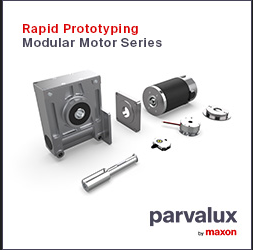Artificial intelligence is an essential factor in the industrial sector when used wisely. Its adoption has brought many advantages to the manufacturing industry. It has made work easier. Let us embrace technology and optimize it in our day to day activities.
How to Optimize Artificial Intelligence in the Manufacturing Industry
Anabella Musto
Artificial intelligence which is also known as machine intelligence is becoming increasingly dominant and will one day challenge natural or human knowledge. Most industries and especially the manufacturing industries are adopting it most likely because of its importance to the future of the sector. Here are some of the ways the manufacturing industries can optimize it to their full advantage.
Using artificial intelligence- based analysis on making wiser decisions.
Data is one of the most critical elements of any given organization. Most manufacturing industries have many outlets in different areas and customers too. The customer's visiting, buying and even commenting on their products. Most of this data can, therefore, get stored in the machines which can save and organize big data in a way that would take people many hours to do. The devices after that analyses this data and the management can make wiser decisions concerning this analyzed information.
Using the artificial intelligence for safety and maintenance of the industrial equipment
The AI-predictive analysis can be used to predict wear and tear in the industry’s equipment. This helps as the employees are informed of any inconveniences early enough hence taking precautionary measures. It also ensures that time that would have been wasted due to breakdowns and stoppage of work in most cases get saved.
Manufacturing industries can use artificial intelligence to manage their inventory.
Some of these industries deal with a lot of inventory. Raw materials, work in progress and finished goods, may need a lot of concentration which is above human capability. Using some apps to manage the information on the inventory could be easier. The management has a greater ability to control its stock depending on various factors which are more favorable to the industry.
Artificial intelligence for building management systems
The artificial intelligence can be used to store a lot of data about the industry. Various departments can, therefore, use these AI-based applications for managing multiple activities in the sector. These activities incorporate paying salaries to workers, showing how particular tasks should be carried out and also handling some other vital functions in the management. This, therefore, helps in the expansion of management systems and how it can store big data. With advanced management systems, there is better operational efficiency in the industry.
Use of process applications to increase productivity
Manufacturing industries can use some AI applications to increase productivity. The use of robots in AI-based applications can be used to test some, for example, machines that can’t be manually operated by humans. Robots can be of significant advantage because of their ability to handle some tasks that could be very dangerous to human since they are machines and even in case of accidents when experimenting, there would be no loss of life. They can work under conditions that humans wouldn’t hence increase productivity.
Artificial intelligence is an essential factor in the industrial sector when used wisely. Its adoption has brought many advantages to the manufacturing industry. It has made work easier. Let us embrace technology and optimize it in our day to day activities.
The content & opinions in this article are the author’s and do not necessarily represent the views of ManufacturingTomorrow
Comments (0)
This post does not have any comments. Be the first to leave a comment below.
Featured Product

